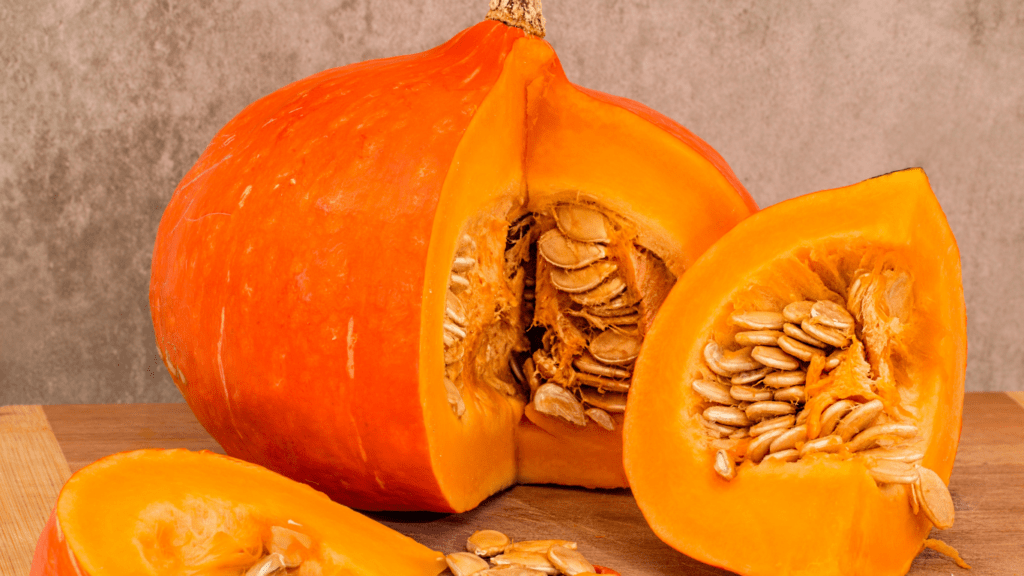Understanding Vegetarian and Vegan Diets for Pets
Vegetarian and vegan diets for pets are gaining traction. It’s crucial to distinguish between these diets and understand their implications for pet health.
Definition and Differences
Vegetarian diets exclude meat but may include dairy, eggs, and other animal by-products. Vegan diets, however, exclude all animal-derived ingredients. Each diet aims to provide complete nutrition from plant sources, but the formulation varies to meet specific dietary needs.
Common Ingredients
Vegetarian and vegan pet foods commonly use legumes, grains, vegetables, and fortified plant-based proteins. Examples include peas, lentils, quinoa, sweet potatoes, and spinach. Essential nutrients missing from plant sources are often supplemented, such as taurine for cats and vitamin B12 for dogs.
Benefits and Challenges
Benefits of vegetarian and vegan diets for pets include reduced environmental impact, potential allergy reduction, and ethical alignment with pet owners’ values. Challenges involve ensuring complete and balanced nutrition and addressing specific health concerns like protein digestibility and essential amino acid content. Consulting veterinarians and pet nutritionists is critical for a healthy transition.
Nutritional Requirements of Pets

Pets have unique nutritional needs that must be met to ensure their health and well-being. Understanding these needs is crucial when considering vegetarian or vegan diets.
Dogs vs Cats: Different Needs
Dogs and cats have distinct nutritional requirements. Dogs are omnivores, capable of deriving nutrients from both plant and animal sources. They need a balanced mix of protein, carbohydrates, fats, vitamins, and minerals. Cats, on the other hand, are obligate carnivores. Cats require specific nutrients like taurine and arachidonic acid, which are primarily found in animal products. These fundamental differences make dietary planning more complex for cats compared to dogs.
Essential Nutrients
Both dogs and cats need essential nutrients to thrive:
- Protein: Essential for growth and repair. Sources include meats, legumes, and fortified plant-based proteins.
- Fat: Provides energy and supports cell function. Sources include fish oil and plant-based oils.
- Carbohydrates: Offer energy. Sources include grains, vegetables, and fruits.
- Vitamins: Necessary for metabolic functions. Important ones include Vitamins A, D, E, and B-complex.
- Minerals: Required for bone health, nerve function, and overall well-being. Key minerals include calcium, phosphorus, and potassium.
Potential Deficiencies
Potential deficiencies can arise in vegetarian or vegan diets for pets:
- Taurine (Cats): Deficiency can lead to serious health issues like dilated cardiomyopathy. Supplementation is necessary.
- Vitamin B12: Both dogs and cats require this for neurological function. It’s generally found in animal products, necessitating supplementation in plant-based diets.
- Arachidonic Acid (Cats): Critical for inflammatory responses. It’s absent from plant sources and must be supplemented.
- Protein Quality: Plant proteins must be carefully balanced to ensure all essential amino acids are included.
Ensuring these nutrients are part of a pet’s diet, particularly in vegetarian or vegan plans, demands careful planning and consultation with veterinary professionals.
Health Benefits and Risks
Vegetarian and vegan diets for pets come with both potential benefits and notable risks. Each can profoundly impact a pet’s health in various ways.
Short-Term Effects
Pets may experience immediate improvements in certain areas. For example, dogs with food allergies often show reduced symptoms like itching and gastrointestinal distress when switched to plant-based diets. Cats may exhibit normalized stool consistency and decreased vomiting if they’re initially sensitive to specific animal proteins. On the flip side, rapid dietary changes without proper monitoring can lead to digestive upsets. Pets may also struggle with palatability issues, refusing to eat the new diet, which can cause weight loss and nutritional imbalance.
Long-Term Impact
Long-term consequences can be more complex. For dogs, a well-planned vegan diet may support overall health, potentially reducing the risk of chronic diseases like obesity and arthritis due to leaner protein sources. Cats, however, risk severe deficiencies if their diet lacks essential nutrients like taurine and arachidonic acid. Persistent nutrient shortages over time can lead to cardiomyopathy or retinal degeneration in cats. Veterinary supervision and regular health check-ups are crucial to mitigate these risks and ensure that pets maintain a balanced diet over the years.
Case Studies
Several studies and anecdotal evidence offer insights into these diets. A 2016 study published in BMC Veterinary Research showed that dogs on a vegan diet maintained good health, with some even showing improved coat condition and energy levels. Conversely, cases like the 2019 investigation by the Journal of Small Animal Practice revealed that poorly planned vegetarian diets led to health issues in cats, underscoring the importance of meticulous nutritional management. Experts recommend consulting veterinary nutritionists to tailor plant-based diets to individual pets’ needs, ensuring they thrive rather than merely survive on such regimens.
Veterinary Perspectives
Considering vegetarian and vegan diets for pets requires insights from veterinarians. Let’s examine professional opinions and findings from relevant studies.
Professional Opinions
Veterinarians often express mixed opinions on vegetarian and vegan diets for pets. Many stress the importance of balanced nutrition. They worry that plant-based diets might lack essential nutrients like taurine for cats and amino acids for dogs, which, if deficient, could lead to serious health issues. For example, Dr. Jennifer Larsen of the University of California, Davis highlights the complexity of replicating a meat-based diet’s nutritional profile using plant ingredients. Some veterinarians take a more cautious approach, advising pet owners to consult with specialists before making dietary changes. They emphasize tailored dietary plans that consider the individual health needs of each pet.
Studies and Research Findings
Several studies have examined the effects of vegetarian and vegan diets on pets. A University of Guelph study found dogs on well-planned vegan diets maintained good health and appropriate blood nutrient levels, indicating these diets can be nutritionally adequate short-term. However, a study from the University of California, Davis revealed that cats on vegetarian diets faced higher risks of deficiencies in taurine and arachidonic acid, essential nutrients predominantly found in animal sources. It also found that long-term adherence to poorly planned vegan diets could lead to health complications. These findings underscore the need for careful nutritional management and continuous monitoring by veterinary professionals to ensure pets meet their nutritional requirements.
Practical Considerations
Switching pets to vegetarian or vegan diets involves careful planning. To ensure pets’ health, it’s crucial to consider several practical factors.
Choosing the Right Diet
Selecting an appropriate diet for pets requires evaluating their specific needs. For dogs, plant-based diets can meet nutritional requirements if meticulously planned. Cats, however, need taurine and arachidonic acid found primarily in meat. Research shows that commercial vegan pet foods often supplement these nutrients.
Balanced Meal Planning
Balanced meal planning ensures that pets receive complete nutrition. Using high-quality, plant-based ingredients is essential. For dogs, include protein sources like lentils, quinoa, and soy. For cats, fortified foods can help meet taurine needs. Consulting with a veterinary nutritionist optimizes diet plans.
Monitoring and Adjustments
Regular monitoring helps detect nutrient deficiencies early. Watch for changes in pets’ coat, energy levels, and digestion. Adjust diets based on veterinary advice to maintain health. Periodic blood tests can track nutrient levels and overall well-being.
By focusing on these practical considerations, pet owners can effectively navigate the complexities of vegetarian and vegan diets for their pets.
Personal Experiences and Testimonials
Hearing firsthand accounts from pet owners helps determine the practical implications of vegetarian and vegan diets for pets. Here’s what some pet owners have shared about their journeys.
Pet Owners’ Stories
Many pet owners felt hesitant when initially transitioning their pets to vegetarian or vegan diets. One story involves a dog named Bella, who experienced chronic skin issues. Bella’s owner decided to try a plant-based diet, focusing on hypoallergenic foods. After three months, Bella’s skin improved dramatically, and her energy levels increased.
Another account features a cat named Tango. Tango’s owner struggled with finding the right diet due to severe allergies. Upon switching to a carefully formulated vegan diet, Tango’s allergic reactions lessened markedly. Routine vet visits confirmed that Tango maintained a healthy weight and normal blood work.
Success And Challenges
Success in transitioning pets to plant-based diets often includes improved health markers. For instance, many dogs exhibit increased energy, reduced allergic reactions, and shinier coats. Consistency and careful food selection seem key factors in these positive outcomes.
Challenges arise mainly from ensuring nutritional adequacy. Some pet owners report initial digestive issues when introducing new diets. These difficulties often alleviate over time with gradual transitions and the inclusion of supplements. Monitoring and regular vet check-ups help address potential nutrient deficits, making it crucial for maintaining pet health.



 Founder & Pet Wellness Advocate
As the visionary founder of Pet Paw Shack, Kimberliene Sabinin is passionate about helping pet owners provide the best care possible for their furry companions. With a background in veterinary science and animal nutrition, Kimberliene brings years of experience in promoting pet health, safety, and well-being. Her mission is to empower pet owners with practical knowledge about proper nutrition, behavior training, and overall pet wellness.
Founder & Pet Wellness Advocate
As the visionary founder of Pet Paw Shack, Kimberliene Sabinin is passionate about helping pet owners provide the best care possible for their furry companions. With a background in veterinary science and animal nutrition, Kimberliene brings years of experience in promoting pet health, safety, and well-being. Her mission is to empower pet owners with practical knowledge about proper nutrition, behavior training, and overall pet wellness.
